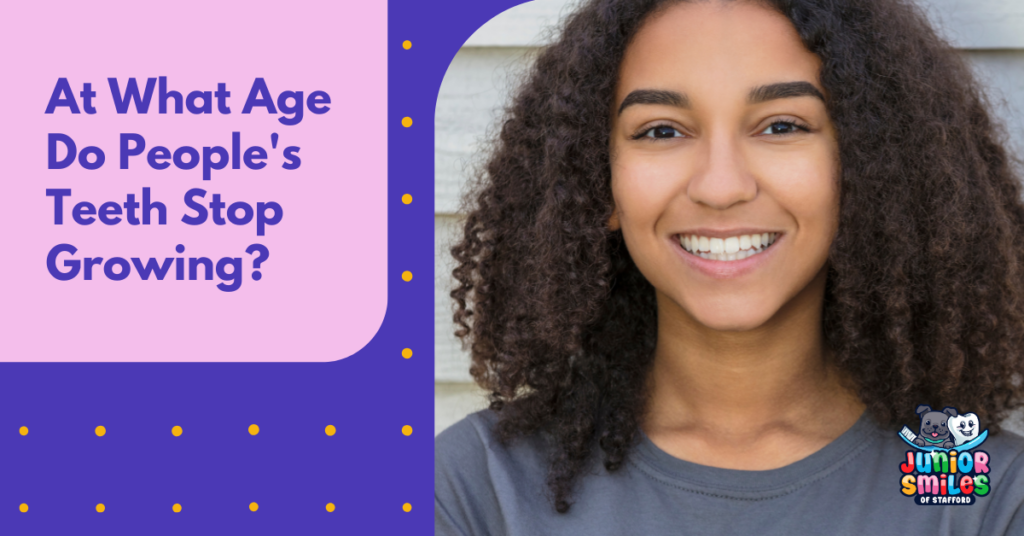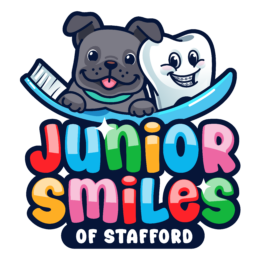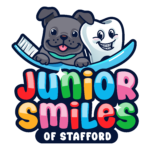At What Age Do People’s Teeth Stop Growing

Teeth are an integral part of our anatomy, vital for the essential functions of eating and speaking, and playing a significant role in our appearance and self-confidence. They also undergo a series of noteworthy transformations as we journey through life. The initial set of teeth, commonly called milk teeth, are temporary and are eventually succeeded by a subsequent stage of permanent adult teeth.
From that first magical moment when a baby’s tooth starts to emerge to the age when growth finally halts, the journey of our teeth is both fascinating and varied. But when exactly do these pearly whites begin to appear, and is there an age when they cease to grow? In this blog post, we’ll dive into the intriguing world of dental development and discover the milestones that mark the life cycle of our teeth.
How Do Teeth Grow Out?
Around the age of six months, an infant usually experiences the eruption of their first teeth. Typically, the two central incisors in the lower jaw are the first teeth to appear. The upper four front teeth come in after that. Canine (pronounced as KAY-Nine) teeth, which are more pointed, often appear between 16 and 23 months of age. After that, your child’s remaining 20 teeth (10 upper teeth and ten lower teeth) will begin to appear gradually, generally in pairs, until they are all present by the time they are 2 1/2 to 3 years old.
As soon as the first molars appear, shedding baby teeth and replacing them with permanent ones begins at around the age of six. However, it is unusual to lose more than two teeth at once. It takes a few years for all the baby teeth to be replaced by permanent ones. Once again, the eight front teeth (incisors) are the first to erupt, followed by the four permanent canines and the four premolars. That means the youngster will have a complete set of adult teeth by the time they reach their teenage years. The wisdom teeth are the last set of molars, often between late teens or early 20s.
Factors Influencing Teeth Growth
An essential part of human development is the appearance of adult teeth, which begins in early childhood and continues until adolescence. Several variables affect how quickly or slowly teeth emerge. Below is a partial list of these:
Genetics
Hereditary factors can affect the timing and order of the eruption of primary (permanent) and secondary (baby) teeth. Even while there’s a rough window when most permanent teeth start coming in, it might differ from family to family. Due to hereditary factors, some persons are born with either no teeth (hypodontia) or additional teeth (supernumerary teeth). The third molar is the most frequently missing tooth at birth, followed by the premolar and the lateral incisors.
One’s genes can influence the size, form, and even the very structure of one’s teeth. The length and breadth of teeth, the presence or absence of cusps, and even the angulation of the tooth roots are all factors. If you’ve always dealt with these issues, your offspring may inherit your tooth spacing and crowded teeth.
Nutrition
To develop healthy teeth, they need specific nutrients at specific times. Minerals like calcium and phosphorus are essential in forming solid dental enamel and dentin.
Additionally, a diet rich in minerals aids in developing teeth that are both strong and resistant to dental issues, such as tooth decay. Nutrients are also essential for developing the jawbone that supports the teeth. When deficiencies cause the jawbone to weaken or not grow properly, it might affect the proper positioning and health of the teeth.
Oral Habits
The development of one’s teeth and jaws can be profoundly affected by one’s oral habits, especially those formed in early life. For instance, using a pacifier for an extended period might cause the top front teeth to shift forward and alter the curve of the dental arch.
What Age Do Teeth Stop Growing?
Each adult tooth will reach its final, fully formed size when erupting. When you reach maturity, the 32 teeth you have are the ones that will remain in your mouth permanently. This does not, however, guarantee an infinite lifespan. That’s why it’s essential to maintain a proper oral hygiene routine to ensure their continued health.
How to Take Care of Teeth and its Eruption
It would be best to take care of your teeth and gums by following a regular oral hygiene routine. Children as young as one should start using a soft-bristled toothbrush and a rice-grain quantity of fluoride toothpaste twice daily. Flossing becomes increasingly essential when teeth merge because it helps eliminate food and plaque between them. Cavities can be avoided, and a healthy set of teeth can develop if you switch to a balanced diet that limits sweet foods and drinks. Suppose you want to catch problems early and get expert advice on the best care for your teeth. In that case, you should visit the dentist regularly—ideally once every six months. Dental sealants are one kind of prevention for the eruption of permanent teeth. As soon as your permanent molars have emerged, you may start protecting them against cavities using this.
Why Do Some Teeth Not Grow Out?
There might be several causes for teeth not emerging. One example is an inherited condition that prevents the eruption of specific milk teeth or adult replacements. Tooth agenesis can manifest as partial tooth loss (hypodontia) or total tooth loss (anodontia). Tooth loss due to trauma is another possible explanation. Damage to a baby tooth might impact the underlying permanent tooth, delaying its eruption or even preventing it from erupting in extreme situations.
Read More: How to Fix Crossbites in Children
Learn More About When People’s Teeth Stop Growing at Junior Smiles of Stafford
In conclusion, teeth generally stop growing in size during adolescence, although changes in position and condition can continue throughout one’s life. Understanding the nuances of dental growth can help you take better preventive measures and make informed decisions about your oral health. If you’re looking for expert dental guidance tailored to every stage of life, consider Junior Smiles of Stafford. Our experienced team is dedicated to providing top-notch dental care for the entire family, from infants to adults. Don’t leave your oral health to chance—schedule an appointment with us today to ensure a lifetime of healthy smiles. Book your appointment with Junior Smiles of Stafford now!

